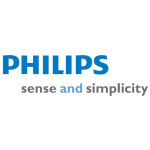
Telemedicine favored by patients
Berlin, Germany - Heart failure patients who used an interactive telehealth system with motivational support tools at home spent less time in hospital and felt their quality of life had significantly improved over 12 months evaluation period, according to the final results of the CARME (CAtalan Remote Management Evaluation) study. The research, which was conducted at the Spanish Hospital Germans Trias i Pujol, and supported by Philips, is being presented at the European Society of Cardiology's Heart Failure Congress 2010 in Berlin.
This is the first time that a telehealth system combining remote patient monitoring with motivational educational support tools has been researched, and the results demonstrate significant additional value and effectiveness for managing the health of chronically ill heart failure patients. Previous studies have analyzed the advantages of telehealth in terms of patient care, decrease in hospital admissions and cost savings, such as TEN-HMS (2005)[i]. The CARME study now demonstrates the additional benefit for patients of including remote educational and motivational tools to improve their quality of life.
The study monitored 92 patients with severe heart failure at home, managed by the Hospital Germans Trias i Pujol Heart Failure Clinic. The interactive telehealth system Philips Motiva was used to connect patients to their healthcare providers via their home television and a broadband internet connection. Patients can take vital measurements in their homes and communicate the information to their physician via the system, and they can also receive educational and motivational information from their physician to help manage their health.
Improvement in clinical results and quality of life
The final data from the CARME study show a significant clinical benefit in using Philips Motiva to monitor heart failure patients in the home, by comparing clinical outcomes 12 months prior to enrollment with the results obtained during the observation period. Results of the study showed a decrease of 68 percent in heart failure related hospitalizations and a reduction of days spent in hospital by 73 percent.
CARME also reveals that patients showed a continuous and significant improvement in their perception of quality of life over the 12 month observation period, an improvement that ranged from 62 percent to 72 percent (depending on the methodology used to measure it (questionnaires "Minnessota Living with Heart Failure" and EuroQoL respectively).

